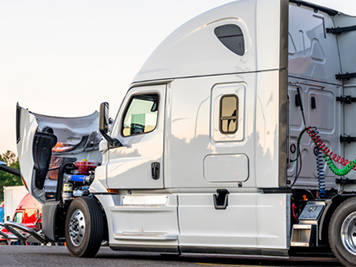The trucking and transportation industry plays an important role in moving products and materials across the country. Land transportation comes with its share of challenges, including occasional on-the-road accidents.
However, since 2011, a trend has been steadily rising in the form of costly legal cases against truck drivers and their companies. These cases result in significant fines, which can heavily impact minor trucking and transportation companies. Insurance rates and premiums are also affected by these cases. Your trucking company should do what it can to avoid accidents, legal fines, and unnecessary insurance costs.
Nuclear verdicts in trucking
"Nuclear verdicts"—verdicts costing over $10 million in damages—are common in trucking accident cases. Trucking litigation data between 2006 and 2019 showed 26 cases over $1 million from 2006 to 2011. However, in the last five years of that data set, 300 cases cost over $1 million. A recent study from the U.S. Chamber of Commerce Institute for Legal Reform showed that between June 2020 and April 2023, the average award was $27.5 million.
Lawyers power these cases, using specific methods to paint truck drivers and companies in a bad light. One move focuses on third-party litigation. This tactic happens when wealthy financiers give attorneys big paydays, which helps fund their suits against trucking companies. When trucking companies pay, the financiers and attorneys split the reward.
Another method involves the use of reptile theory. Here, plaintiff attorneys use the threat of unsafe driving allegedly caused by truck drivers to paint them as dangerous to the community. This tactic can also be pushed through different forms of media. Crafted by law firms that specifically take on cases involving accidents with 18-wheelers, these ads are angled to place blame on truck drivers while promising clients big court payouts.
Of course, truck drivers aren't always at fault in every accident. For example, a Werner Enterprise driver was involved in an accident after a pickup truck swerved in its path. Investigating officers did not find fault with the Werner driver since they had been driving below the speed limit. The jury thought otherwise, resulting in a massive verdict against the company.
Rising premiums and rates
Large verdicts increase costs for insurance companies paying claims. As a result, insurance premiums rise for truck drivers. One state that feels the effects of predatory court cases is Texas. The state saw 55,300 motor vehicle lawsuits in 2019. There has been a 400% increase in coverage above primary or self-insurance limits, while medical providers' insurance rates are increasing 20 times above the charged rates.
The nation is also seeing growing insurance premiums. The American Transportation Research Institute noted that most motor carriers saw insurance costs rise from 2018 to 2020. Premiums rose across all fleet sizes and sectors. Small fleets paid more than three times as much as large fleets per mile.
Ways to address these rising verdict costs
There are many tools and services you can use to protect your drivers. One is the Federal Motor Carrier Safety Administration (FMSCA). Following the FMSCA’s regulations and advice can be essential for helping secure your drivers’ safety. Keeping track of medical and driving records is also an important step. If an accident happens, you want to ensure your drivers have all their medical and driving records up to date.
Technology can help protect your trailers and drivers in court if an accident happens. Dashcams on the front and back of the vehicle can provide a clear image of what happens during an accident. These tools can be valuable in showing fault should a driver have to go to court. Telematics, which combines telecommunications and computer processing, can keep track of your workers are driving day to day.
How Marsh McLennan Agency can help
Our trucking and transportation specialists have resources and solutions to help manage risks, including:
- Comprehensive compliance programs
- Communication and collaboration with carriers
- Early intervention tactics and resolution of incidents
- Mock inspections
- Regular process reviews to identify areas of improvement
- Risk and claims management
- Risk Management Information System
- Third-party administrators
- Vigilant monitoring and response to potential risks
- Business strategy planning
Are you looking to go beyond traditional insurance? A captive program can be an alternative risk transfer solution, offering lower costs and more control over your risks.
Learn more about nuclear verdicts and current trends in our Business Insurance Trends Report.
Contact a Marsh McLennan Agency trucking and transportation specialist today to help secure your organization’s financial future.



